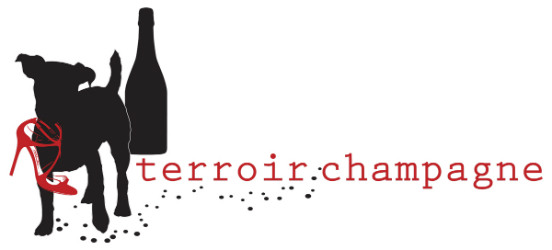This seems like a valid question when we talk about Champagne. Over the years Champagne has build its reputation on blending not only different vintages and varieties, but also different terroirs together. It is precisely this three ways blend which defines the taste of Champagne – or so we are led to believe at least.
And whilst I fully agree that there are characteristics which are typical for all Champagnes – such as mineral notes, good acidity and a certain lightness and elegance – there can be so much more if only we allow ourselves to think of Champagne as a wine. When we do this, we realize very quickly that just like in Burgundy there are a myriad of terroirs and micro climates in the Champagne region.
The Champagne industry does acknowledges this at the beginning of each year when they set out to taste their vins clairs – the base wines used for the blend. However, the aim is not to isolate a particular good wine or particular good parcels they way it is done in Burgundy; the chefs de caves are more interested how this wine will be able to fit into the blend. In other words in Champagne it is more important to make a (very) large quantity of standarized wine of the highest quality rather than a small batch of outstanding wine with a unique character which may change from year to year.
Consistency of flavour and quality are the back bone of the Non Vintage Champagnes (Brut Sans Année) – which count for around 85% of today’s production. It is what allowed Champagne to lift itself above other sparkling wines and to make the THE celebration drink of choice.
Whilst I admire the Champagne Houses for achieving this again and again, homogeneous standarized wines have never really excited me. To me they lack personality and character and I find it difficult to distinguish between them – in the same way I cannot make a difference between several sheep in a flock.
I have always been drawn to the unique, the unusual, creative rather than the standard, and Champagne is no exception here. To excite me a Champagne needs to be first and foremost be a wine with a soul; more specifically a unique wine that can capture me in a little bubble of happiness and pleasure. Like Dom Perignon, I want to taste the stars and be amazed and surprised time and time again.
And for me these wines are generally terroir inspired Champagnes – wines who tell a story of a place, a time, an experience of the winemaker. I see terroir in the largest possible way because I believe it includes the wine maker or producer. It is he or she who has the vision, decides what varieties to plant, how to work the soils, the yields, when to harvest, how to vinify, to blend or not, how long to age and what dosage to add in the end; with all these decisions to make it is very difficult not to see the winemaker at the heart of the wine, even if many will tell me that they want to express the uniqueness of a particular place.
I feel that to make Terroir Champagnes the roots of the vines and of the producer have to be very closely entwined. All the winemakers in this project are very close to their vineyards and all are involved in some form or other of sustainable grape growing, and many are certified organic and/or biodynamic.
Wine has to be alive to be able to show its unique character and this life needs to be nurtured from the beginning. It is after all very hard to express unique characters of a place which has been modified so very much by chemicals to the point that it lost its character…
All Champagne makers I have grouped together here make wine which expresses their terroir, this can be a Champagne who reflects the characteristics of their village, of a selection of vineyards or even of a single vineyard. I deliberately decided not to speak about big houses (bar two), because their general focus is not the terroir, even if some of them now produce terroir wines. This does not mean I do not appreciate their wines, it just means that I feel they don’t fall into the category of Terroir producers.
Lastly, all producers in this project, are Champagne makers whose wine I drink on a regular basis. It is the Champagne I go and buy to drink with my friends and family; it is the Champagne I drink because it gives me pleasure! I believe I can only really recommend a producer if I am willing to spend money on his product in the same way that I would only recommend a restaurant I like eating in.
